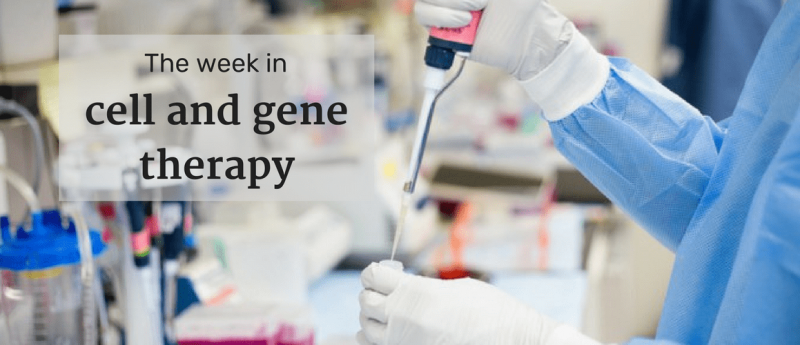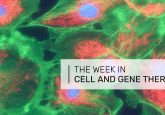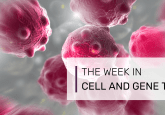Cell therapy weekly: FDA grants designations for novel stem cell gene therapy

Also this week: Maxcyte and Apeiron collaborate to develop a cell therapy and Polyplus-transfection launches a residual test.
The news highlights:
Novel hematopoietic stem cell gene therapy garners FDA designations for the treatment of mucopolysaccharidosis type I
Partnership to advance development of an siRNA-based cell therapy
Polyplus-transfection launches a residual test for its transfection reagent products
Novel hematopoietic stem cell gene therapy garners FDA designations for the treatment of mucopolysaccharidosis type I
Orchard Therapeutics (London, UK) have announced their receipt of both orphan drug designation and rare pediatric disease designation from the US FDA for OTL-203, an autologous hematopoietic stem cell gene therapy that is currently being developed for the treatment of mucopolysaccharidosis type I (MPS-I). This follows new interim data from an ongoing proof-of-concept clinical trial evaluating the safety and efficacy of OTL-203.
“We are pleased by the FDA’s acknowledgement of the critical and urgent need to develop additional treatments for MPS-I given the severe, life-limiting nature of the disease,” commented Bobby Gaspar, chief executive officer of Orchard. “The underlying causes of lysosomal storage disorders such as MPS-I have been notably difficult to address, and we are encouraged by the early evidence of our hematopoietic stem cell gene therapy’s approach to potentially treating this condition. The orphan drug and rare pediatric disease designations provide important momentum for the OTL-203 clinical program, which we remain committed to advancing as quickly as possible for patients in need.”
Partnership to advance development of an siRNA-based cell therapy
MaxCyte (MD, USA) and Apeiron (Vienna, Austria) have entered an agreement to utilize MaxCyte’s flow electroporation technology and ‘ExPERT’ platform for the development of APN401, an siRNA-based cell therapy that has completed Phase Ia/Ib trials, with a Phase II study currently being planned to explore its potential as a treatment for solid tumors.
Peter Llewellyn-Davies, CEO of Apeiron, commented: “Securing access to MaxCyte’s ExPERT platform and unique electroporation technology is a crucial next step in the clinical advancement of our lead checkpoint inhibition CbI-b candidate APN401.”
Polyplus-transfection launches a residual test for its transfection reagent products
Polyplus-transfection (Strasbourg, France) has launched its first GMP-compliant residual test for its PEIpro product portfolio to detect residual transfection reagent during the production of advanced therapeutic medicinal products for cell and gene therapies. This test will be used as a quality control and can be adapted for each ATMP in order to ensure the lowest limits of detection.
“As increasing numbers of ATMPs and gene therapies move through late stage trials and commercialisation, demand on GMP reagent supply continues to increase. The complexities of ATMP therapies mean that Polyplus® has to increase its services to the sector alongside increasing its product portfolio,” explained Claire Wartel (Polyplus-transfection), director of quality and compliance. “By offering PEIpro residual testing and dual sourcing of PEIpro-GMP to the ATMP market, this enables sector maintenance of regulatory compliance in addition to the lowering of manufacturing and supply risks. Polyplus will continue to work with the ATMP sector to develop further tests and services for therapies for patients.”





